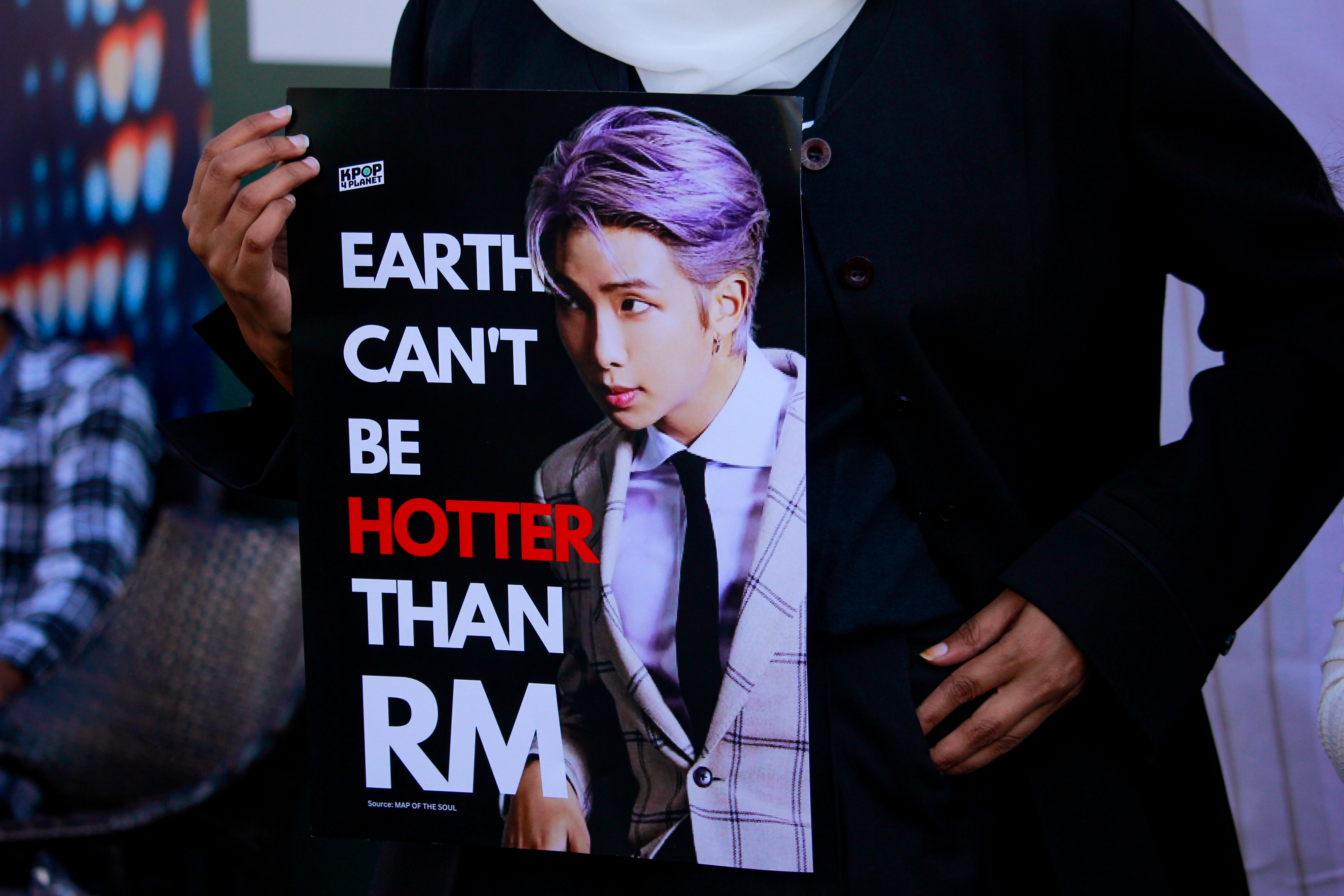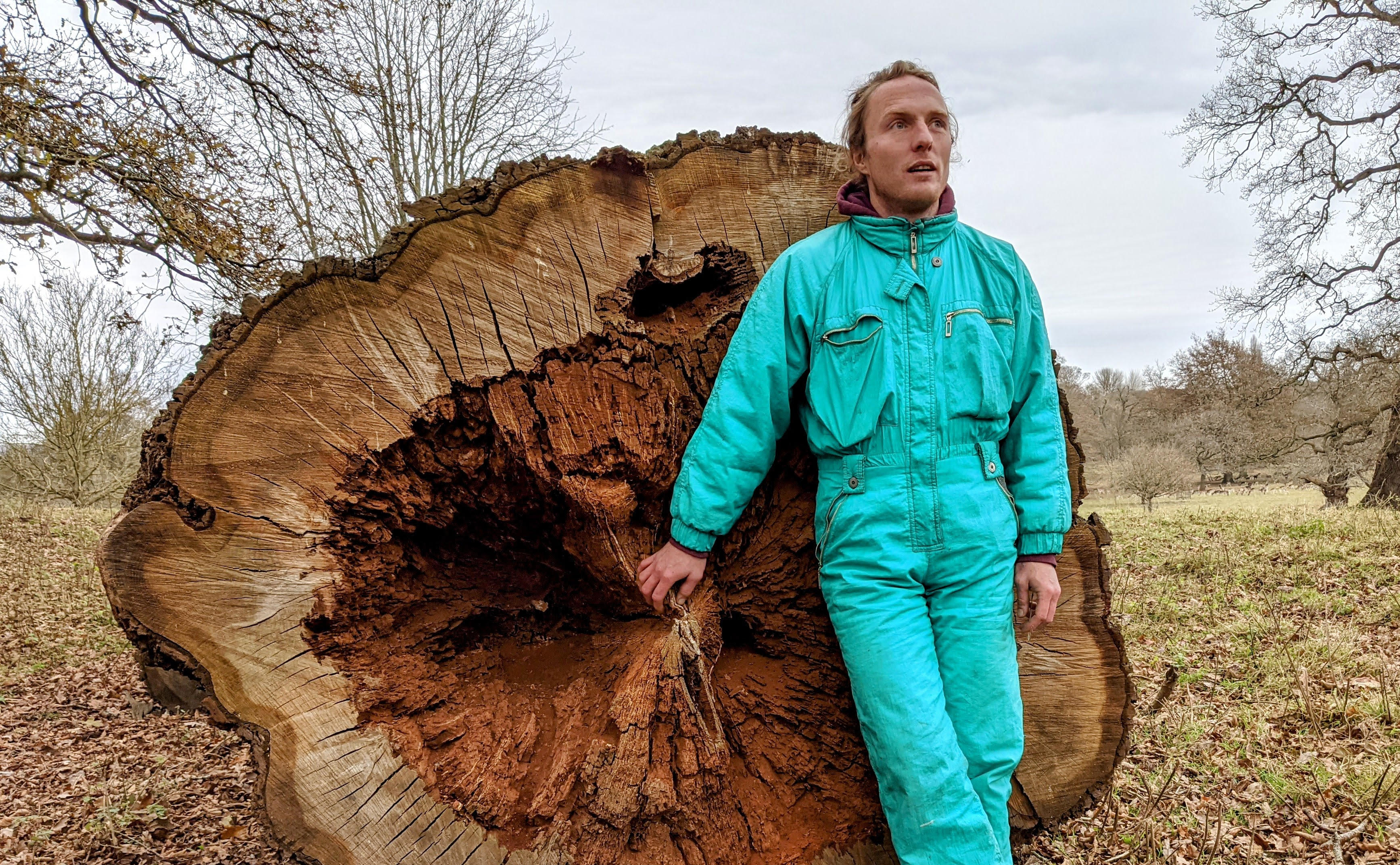Britain's nature is in freefall. Can it still be saved?
Rivers full of plastic, beaches full of sewage, fens all but gone and half the native species already extinct. This isn't a dystopia, but today's reality - unless both major parties take on a new approach.
“I think I can remember a time in the 1970s when there were many more butterflies. I am certain that flocks of lapwings were an everyday sight on farmland when I was a child, and that the unmistakable springtime call of cuckoos could be heard anywhere I went in the countryside. Children of the new millenium are growing up in a world where butterflies, lapwings and cuckoos are scarce. They are never asked by their dad to scrub the windscreen of the car free of splattered insect remains after a summer drive. They almost certainly never spent a lunchtime in an overgrown corner of their primary school playing field, catching grasshoppers in their hands, because there aren’t any.”
Thus writes Dave Goulson, a British professor of biology, in his 2021 book Silent Earth: Averting the Insect Apocalypse. He opens his musings with “I think” because “human memory is imprecise, biassed and fickle” and studies show “we are prone to revising our memories”. But studies also show that on this occasion, Goulson’s memory is spot-on: nature was more abundant in his youth and, that if we don’t take action today, our own children “will grow up in a world with even fewer insects, and birds and flowers, that we have today, and they will think that is normal”.
Nature in the UK has been in free-fall since the 1970s - crumbling in the face of intensive agricultural practices, industrialisation and urbanisation. In England, 99.7% of fens, 97% of grasslands, 80% of heathlands, up to 70% of ancient woodlands and 85% of salt-marshes have been destroyed or are now in a degraded state; a quarter of mammals and almost a fifth of plants are threatened with extinction; half (!) of our native species are already gone. And the rivers and seas are filled with sewage. Sewage pollution incidents in English rivers have increased 29-fold in the last five years and only 14% of rivers in England have “good” ecological status. The River Tame in Greater Manchester recently recorded the highest level of microplastics anywhere in the world.
And lest you think it’s as bad the same everywhere else: it isn’t. While the Tory government likes to refer to the UK as world-leading, it’s increasingly ahead for all the wrong reasons. England is in the top 10% of all countries globally in terms of nature destruction. Its flora and fauna are in a worse state than in every other wealthy country that makes up the G7 (Canada, France, Germany, Italy, Japan and the US). When compared to the 27 countries remaining in the EU, and which were subject to the same rules as the UK, only Ireland and Malta come out worse. And the UK has retained only half of its plants and animals, compared with 65% of species surviving in France, 67% in Germany and 89% in Canada.
This devastation was not inevitable. It is the result of cumulative policy by both Conservative and Labour governments - some bad, some good but half-hearted, patchy and inconsistent. Even today, neither major party has a coherent, comprehensive plan to restore nature across the UK, or to protect what has been left. Instead, nature has been allowed to fall through the cracks or overlooked in the debate about climate change: concerns about rising sea levels make floodplains sound like a threat, not keystones in our ecosystem that need to be restored and protected.
The Brexit distraction
On the Conservative side, ministers have spent the last few years blaming the EU’s Common Agricultural Policy (CAP) and its historic focus on paying farmers to squeeze every last drop of goodness out of the earth for this state of affairs. Freed from the yoke of EU legislation post-Brexit, all attention would be on protecting and restoring the country’s flora and fauna, promised the Tories. Instead, the government is lighting a bonfire under the EU legislation that did offer nature some security - and is backtracking on its own commitments to replace it.
“From the Tories we have seen some good ambition,” says Harry Bowell, Director of Land and Nature at the National Trust, but adds that when push comes to shove “there is a complete lack of follow up.”
As environment secretary in 2018, Michael Gove promised that farmers and landowners would be paid for “public goods”, like improved soil and water quality, rather than for producing as much food as possible. Bowell says he and others “really applauded” the idea. Measures and policies implemented since, however, have been less ambitious and lacking in financial support, he comments, and certain protections offered by EU legislation have even been watered down since Brexit.
The British Beekeepers Association says the country now has the lowest regulations in Europe for neonicotinoids, banned pesticides known to harm pollinators. The NGO cites the decision by farming minister Mark Spencer in January, to allow farmers to temporarily use these substances on sugar beet for the third year in a row. The EU Court of Justice had ruled only days before that such emergency derogations are not in line with EU law.
Spencer also made his controversial decision little more than a month after COP15, the international biodiversity summit in late 2022, where the UK had backed a global target to reduce the risks from pesticides by at least 50%by 2030. This pledge was part of the Global Biodiversity Framework agreed in Montreal, which UK Environment Secretary Thérèse Coffey hailed as “a historic milestone in protecting our natural environment for future generations”. The Department for the Environment, Food and Rural Affairs (Defra) insisted the UK had “played a key role in brokering these commitments on the world stage and we will continue to drive forward action on tackling biodiversity loss”.
The discrepancy between the approval of the neonicotinoid and pesticide-pounding rhetoric on the international stage is only the tip of the iceberg when it comes to Britain’s disconnect between words and deeds.
"Limping from one media cycle to the other"
During COP15, the UK published its Environment Act. The document failed to include the very targets the government was negotiating for the rest of the world, namely the agreement to protect 30% of land and sea by 2030. “How bizarre was it for Defra to publish targets during COP15 when it was obvious a good result would make those targets out of date,” says Craig Bennett, chief executive of the Wildlife Trusts. “There never seems to be much of an assessment to see if policies will live up to delivering targets.”
A similar problem emerged when the government’s Environmental Improvement Plan was published in January 2023. “There is some good thinking in it, but is it enough to deliver on legally binding targets, on international commitments? No,” says Bennett. “I would be fine if they said here is a plan and it will do 80% of it and we know we need to do some more thinking.” Instead, the government simply fails to connect targets and policies, he suggests.
Part of the problem is that “government is incredibly siloed”, between departments and within departments, says Bennett. The fact politicians appear to be largely “driven by stories and headlines, limping from one media cycle to the other” doesn’t help either, he adds.
In addition to the relative weakness of new nature policies slowly being brought in by the UK government, there is the massive headache of the Retained EU Law Bill, which is making its way through parliament. The ideological brainchild of Brexiteer Jacob Rees-Mogg, the law would delete all legislation associated with the EU from the UK statute book at the end of the year. This action would include the destruction of “over 1,700 pieces of environmental legislation,” says Green MEP Caroline Lucas, who describes the law as “misguided and reckless”.
“The Conservatives have taken a wrecking ball to our natural world,” says Lucas, highlighting a report from the Office for Environmental Protection, a recently created government watchdog, showing the government is not on-track to achieve any of its 23 environmental targets.
Labour hasn’t started working
Lucas also accuses Labour of “lagging behind on nature”. At the National Farmers Union conference in February, the party’s leader Keir Starmer said farming's ultimate goal is food production and “we can’t lose sight of farming as a business,” says Lucas. “We certainly have to back our farmers — but the biggest threat to food security in the long-run is declining pollinators, disappearing soils and polluted waterways.”
The narrative of farmers being on one side of the fence and environmentalists being on the other is as old as the hills, but Bennett dismisses it. “There is no such thing as one farming community,” he says. “It is a tragedy, and a bit of a scandal, that the big old dinosaurs of the farming community have trampled over smaller family farms.” Under the CAP, the biggest farms, and generally those doing the least for nature, received the most money. Bennett blames the same incumbents, whose owners are often banks or rich landowners, for working on government to water down Gove’s ambition of a “green Brexit” that would offer a better deal for smaller farms and nature.
"There is no such thing as food security if our nature is in decline"
The idea that big farms need continued support to shore up food security has strengthened since Russia invaded Ukraine, disrupting global cereal supplies. Some politicians have used the war as an excuse to push back against setting aside land for nature. Lydia Collas from Green Alliance, a UK think tank, says this is a misleading argument. “Just 3% of calories come from the least productive 20% of land in England,” she says. “If this land were restored for nature, we could see huge biodiversity improvements with very little loss of food production. It is a convenient story to say we can’t take any land out of food production, but our work shows the incomes of these farms would rise by at least 20% if this land was used for nature.”
Bennett agrees: “There is no such thing as food security if our nature is in decline.”. Various studies have highlighted the negative impact falling numbers of pollinators like bees have on food production. Bennett also suggests certain land changes that could be beneficial for food and nature. “By some estimates, 2% of our land is used to grow food for pheasants,” he comments.
Nonetheless, both of the UK’s main political parties seem to be more comfortable talking about “clean energy”, “net zero” and even climate change than nature.
“Labour is doing some proper joined up thinking between climate, energy, economics and the social justice debate,” says Bennett. “That’s great,” but the party, which many believe will be voted into government in the 2024 UK elections, still “seems siloed between climate and nature,” he adds. It is “total nonsense” to play off climate change and nature against one another. “We can’t solve one without solving the other. We desperately need Labour to understand that nothing they are trying to deliver,” — not even plans to ‘build an NHS fit for the future’ — “can be delivered unless we reverse the declines in nature,” says Bennett.
"Restoring the natural world can help to mitigate the worst effects of climate change"
Nature and climate are “two sides of the same coin,” agrees the National Trust’s Bowell — land use changes that are “sensible for climate and make landscapes more resilient”, such as flood plains, are “really good for nature too”. Caroline Lucas concurs. “We need a joined-up approach across climate and nature policy,” she says. “Protecting and restoring the natural world can help to mitigate the worst effects of climate change, whether that’s tree-planting, revitalising peatlands or replanting our hedgerows. And legislation is needed to give farmers greater security of tenure, so they’re able to invest in sustainable, long-term improvements to their land.”
Ignoring nature also seems a poor electoral tactic. YouGov data from 20 February 2023, shows 56% of voters think the government is handling environmental issues badly in the UK, compared to 28% who think it is doing a good job. The environment also consistently plays out as a top issue for UK voters, along with the economy, health and immigration.
“Lots of amazing things happening in communities, and politics are out of synch with this,” says Bennett. “The pathetic ideological debates in Westminster are disconnected from what is happening on the ground and what people want,” he says, referring in particular to the ditching of EU legislation. Any MP in favour of Rees-Mogg’s bill is “voting to get rid of existing environmental protections when they don’t have a clue about what will replace them,” says Bennett. “There is no excuse for that, it is being done for purely party political reasons.”
"Nature can bounce back and you think: blimey, that’s amazing"
In an attempt to prove to all political parties that the British public wants action to protect and restore nature, this week (23 March) the WWF, the National Trust and the RSPB launched a People’s Plan for Nature. Based on a citizens' assembly of 103 people and nearly 30,000 responses from the public, the plan calls for urgent and immediate action and sets down policies it hopes political parties will include in their manifestos for next year’s general elections.
These include the need for nature to be included in decision-making at all levels and for the creation of a permanent assembly on nature. “Fundamentally this is about what kind of country we want to be,” says the Wildlife Trust’s Bennett. “Do we want to be some tacky industrial park off the west coast of Europe that not many people want to go to and invest in or do we want to be a good place to live with a good economy that is fit for the twenty-first century and where people think Britain is leading the world in this [nature] agenda?”
The National Trust’s Bowell is “optimistic” the UK can, if it wants, start to reverse the losses of the last five years. “Where nature is given space and agents of destruction are removed, the response is positive,” he says. “Nature can bounce back and you think: ‘blimey, that’s amazing’. Nature is not so knackered there is no hope of a response.”
The Lead is now on Substack.
Become a Member, and get our most groundbreaking content first. Become a Founder, and join the newsroom’s internal conversation - meet the writers, the editors and more.





